The death of a loved one is a tough time. Apart from the emotional toll, families also have to consider burial and memorial costs.
Many people now choose cremation for their loved ones to reduce burial costs. The burial costs have increased hugely in the last two decades, and more people prefer cremation. According to the Cremation Association of North America, cremation rates in the US have doubled in the last 15 years.
Hence, many ask, what is the cost of cremating a loved one?
The cost to cremate a human with financial services is around $6,900 with a funeral service. The average cost for burial with funeral service is $7,000 to $12.000.
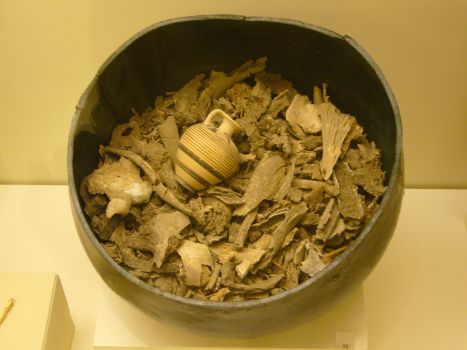
Cost of Cremation
Direct Cremation
This is the most cost-effective type of cremation. It involves the body being cremated soon after death, without a funeral service beforehand. The body is cremated in a simple container rather than a costly casket. The ashes are usually returned to the family in a simple urn or container. The average cost of a direct cremation in the United States ranges from $1,000 to $3,000. Depending on your selected services, you can also get cremation services for under $1,000.
Cremation with Services
This type of cremation includes additional services like a viewing or funeral service before the cremation process. This can significantly increase the overall cost due to the added expenses of embalming, renting a casket, funeral home facilities use, and professional services for the funeral ceremony. The average cost of cremation with a funeral service in the United States ranges from $2,000 to $10,000 or more, depending on the specific services chosen.
The cost of cremation with viewing and service is usually more than $5,000.
No-Cost Cremation
“No cost cremation,” also known as “free cremation,” often refers to a body donation program where the body is donated for research or educational purposes. After the institution has completed its use of the body, which can include medical training or scientific research, the body is typically cremated. The ashes are returned to the family, usually at no cost. The specifics can vary by program, but generally, this allows individuals to contribute to scientific progress while reducing or eliminating cremation costs.
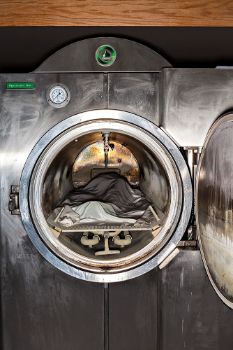
Cremation Costs Breakdown
Basic Services Fee
This is a standard charge that generally includes services that are common to all funerals. These services may include funeral planning, necessary permits and copies of death certificates, notices, sheltering the remains, and arrangements with the cemetery, crematory, or other third parties. Costs may range from $1,000 to $2,000.
Cremation Process
The actual cost of the cremation process can vary, but it typically ranges from $500 to $1,000.
Urn or Container
The cost of an urn or another container to hold the ashes can vary significantly, from around $50 for a basic container to $1,000 or more for a more elaborate urn.
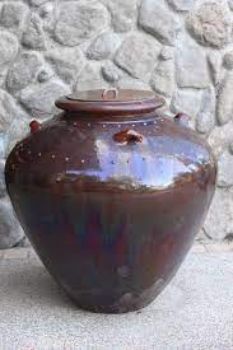
Memorial or Funeral Service
Choosing to have a service before or after the cremation can add to the cost. The cost of a service can vary based on various factors, but it might range from $1,000 to $3,000 or more.
Viewing or Visitation
This involves embalming, renting a viewing casket, and the use of viewing facilities. Costs can range from $500 to $1,000.
Transportation
This includes the transportation of the body to the funeral home and the crematory. This can cost around $300 to $500.
Additional Services and Goods
These may include charges for flowers, obituaries, graveside services, and additional copies of the death certificate. These costs can vary widely.
Direct Cremation Cost vs. Cremation with Funeral Service Cost vs. Burial Service Average Cost vs. Common End of Life Medical Expenses
| State | Cremation Service Average Cost | Direct Cremation Average Cost | Burial Service Average Cost | Common End Of Life Medical Expenses |
| Alabama | $6,214 | $2,116 | $7,171 | $12,276 |
| Alaska | $6,128 | $2,035 | $7,125 | $17,620 |
| Arizona | $5,794 | $1,530 | $6,788 | $13,923 |
| Arkansas | $6,505 | $1,771 | $7,234 | $12,054 |
| California | $6,128 | $1,682 | $7,125 | $19,073 |
| Colorado | $5,794 | $1,783 | $6,788 | $14,436 |
| Connecticut | $7,169 | $3,250 | $7,981 | $17,218 |
| Delaware | $7,170 | $2,716 | $7,900 | $14,837 |
| Florida | $7,170 | $1,783 | $7,900 | $13,605 |
| Georgia | $7,170 | $2,018 | $7,900 | $12,276 |
| Hawaii | $6,128 | $1,647 | $7,125 | $27,075 |
| Idaho | $5,794 | $1,800 | $6,788 | $12,927 |
| Illinois | $7,053 | $2,651 | $7,968 | $13,162 |
| Indiana | $7,053 | $2,384 | $7,968 | $12,414 |
| Iowa | $7,660 | $3,092 | $8,600 | $12,650 |
| Kansas | $7,660 | $2,625 | $8,600 | $12,068 |
| Kentucky | $6,414 | $2,122 | $7,371 | $12,885 |
| Louisiana | $6,505 | $2,383 | $7,434 | $12,830 |
| Maine | $7,169 | $2,447 | $7,981 | $15,986 |
| Maryland | $7,170 | $2,526 | $7,900 | $17,633 |
| Massachusetts | $7,169 | $2,796 | $7,981 | $18,256 |
| Michigan | $7,053 | $2,345 | $7,968 | $12,484 |
| Minnesota | $7,660 | $3,014 | $8,600 | $13,910 |
| Mississippi | $6,414 | $2,086 | $7,371 | $11,639 |
| Missouri | $7,660 | $1,945 | $8,600 | $12,207 |
| Montana | $5,794 | $2,578 | $6,788 | $13,577 |
| Nebraska | $7,660 | $3,069 | $8,600 | $12,719 |
| Nevada | $5,794 | $1,528 | $6,788 | $14,975 |
| New Hampshire | $7,169 | $2,276 | $7,981 | $14,879 |
| New Jersey | $7,563 | $2,605 | $8,193 | $16,263 |
| New Mexico | $5,794 | $2,040 | $6,988 | $12,304 |
| New York | $7,563 | $2,491 | $8,193 | $18,409 |
| North Carolina | $7,170 | $2,014 | $7,900 | $13,134 |
| North Dakota | $7,660 | $3,283 | $8,600 | $13,328 |
| Ohio | $7,053 | $2,145 | $7,968 | $12,761 |
| Oklahoma | $6,505 | $2,241 | $7,434 | $11,916 |
| Oregon | $6,128 | $1,364 | $7,125 | $18,533 |
| Pennsylvania | $7,563 | $2,556 | $8,193 | $14,006 |
| Rhode Island | $7,169 | $2,715 | $7,981 | $16,429 |
| South Carolina | $7,170 | $2,037 | $7,900 | $13,162 |
| South Dakota | $7,660 | $2,926 | $8,600 | $13,328 |
| Tennessee | $6,414 | $2,033 | $7,371 | $12,387 |
| Texas | $6,505 | $2,208 | $7,434 | $12,677 |
| Utah | $5,794 | $1,725 | $6,788 | $13,370 |
| Vermont | $7,169 | $2,395 | $7,981 | $15,958 |
| Virginia | $7,170 | $2,557 | $7,900 | $13,965 |
| Washington | $6,128 | $1,560 | $7,125 | $15,308 |
| Washington DC | $7,169 | $2,249 | $7,981 | $13,965 |
| West Virginia | $7,170 | $2,357 | $7,900 | $12,650 |
| Wisconsin | $7,053 | $2,962 | $7,968 | $13,231 |
| Wyoming | $5,794 | $2,633 | $6,788 | $13,107 |
What to do with Ashes? Different Options after Cremation
Keep Them at Home
Many people keep their loved one’s ashes in an urn or another container at home. The cost of an urn can vary greatly, from as low as $50 for a simple urn to $300 or more for more elaborate designs.
Bury Them
Ashes can be buried in a family plot, a cremation garden, or a columbarium niche. The cost can range from a few hundred to several thousand dollars, depending on the specific cemetery and type of plot or niche.
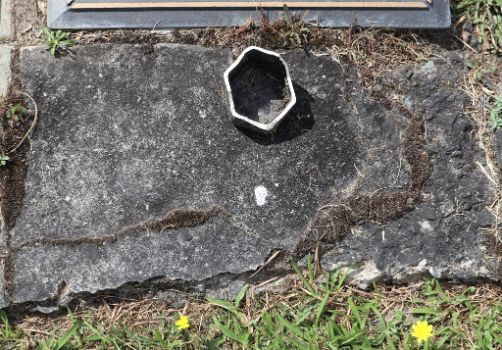
Scatter Them
Some people scatter their loved one’s ashes in a meaningful location. Be sure to check local laws, as some places require permits. Costs can vary; while there may be no cost to scatter ashes in a personal or public location, a scattering garden or a company that provides scattering services might charge from $100 to $500 or more.
Create a Memorial Object
Some companies incorporate ashes into objects such as jewelry, glass art, or even vinyl records. These services can range from about $100 for a simple piece of jewelry to $500 or more for more intricate items.
Plant Them
You can purchase a biodegradable urn to turn your loved one’s ashes into a tree or plant. These typically cost between $50 and $150.
Launch Them into Space
Companies like Elysium Space and Celestis offer to send a portion of cremated remains into space or to the moon. The cost for these services starts at around $2,500.
Turn Them Into a Coral Reef
Companies like Eternal Reefs can incorporate cremated remains into an artificial coral reef. The cost for this service starts at around $3,000.
Tattoos
Some tattoo artists can mix a small amount of ashes into tattoo ink and create a commemorative tattoo. The cost depends on the size and design of the tattoo, but it could range from $200 to $1,000 or more.
Different Ways to Pay for Cremation
Savings or Personal Funds
If you or the deceased have enough savings, this can be the simplest way to pay for cremation costs. It’s important to consider all expenses and ensure enough to cover everything.
Life Insurance
Some life insurance policies can be used to cover funeral and cremation costs. You’ll need to check the policy terms and possibly discuss the situation with the insurance company.
Pre-Need Insurance or Funeral Insurance
This is a type of insurance specifically designed to cover funeral costs. Payments are often made in installments, and the policy is usually paid directly to a funeral home.
Crowdfunding or Donations
Websites like GoFundMe allow you to create a campaign to raise funds for funeral costs. This can be a good option if you’re comfortable sharing your situation publicly and have a supportive community.
Payment Plans
Some funeral homes offer payment plans, allowing you to cover the cost over time. Be sure to ask about interest rates and any potential penalties for missed payments.
Social Security Death Benefits
If the deceased received Social Security benefits, a one-time payment of $255 can be made to a surviving spouse or child.
Veterans Benefits
If the deceased were a veteran, they may be eligible for the Department of Veterans Affairs burial benefits. These could help cover some or all of the cremation costs.
Estate
If the deceased left an estate, the executor may be able to use funds from the estate to pay for cremation costs.
Credit Card
If none of the other options are available, you might consider paying with a credit card. Remember that interest can add up if the balance isn’t paid off quickly.
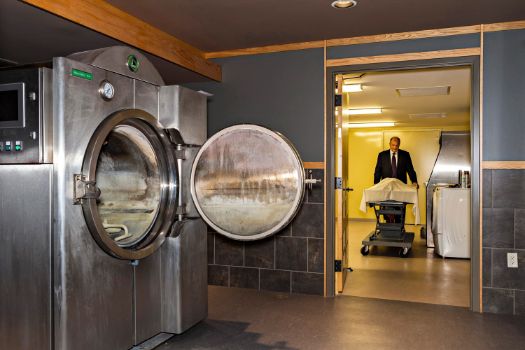
Tips to Reduce Cremation Costs
Direct Cremation: Opting for a direct cremation without a funeral or memorial service can significantly reduce costs. With direct cremation, the body is cremated shortly after death without embalming, viewing, or visitation.
Shop Around: Prices vary greatly between funeral homes and cremation service providers. Don’t be afraid to call around, ask questions, and compare prices.
Skip Embalming: If you’re opting for direct cremation, there’s no need for embalming. Even if you have a service, you might have it without the body present to avoid embalming costs.
Choose an Affordable Urn or Container: A simple or homemade urn can be much cheaper than an ornate one from a funeral home. Some people choose to scatter the ashes and forego an urn entirely.
Hold a Memorial at Home or a Non-traditional Venue: Instead of paying for a service at a funeral home, you could hold a memorial service at home or another meaningful location.
Limit Additional Services: Extras like flowers, obituaries, and graveside services can add up. Consider which services are truly important to you.
Pre-Planning: Consider pre-planning your funeral and paying in advance. This can often lock in current prices and prevent your family from making expensive decisions while in a state of grief.
Veterans Benefits: If the deceased was a veteran, they may be eligible for benefits that can help offset the cost of a funeral or cremation.
Donate to Science: In some cases, donating your body to science can result in a free or low-cost cremation once the medical school or company uses the body for learning or research.
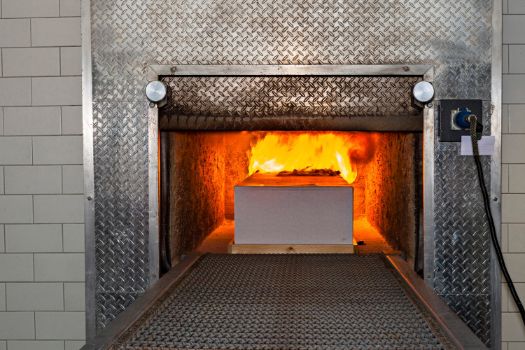
Top Reasons Why People Choose Cremation over Burial
Cost: Cremation is generally less expensive than a traditional burial. It avoids costs associated with embalming, a burial plot, a casket, a burial vault, and a headstone.
Flexibility: Cremation allows for a more flexible timeline for memorial services. Instead of rushing to organize a funeral shortly after death, families can plan memorial services at a time and place that suits them.
Environmental Considerations: Some people choose cremation for its lower environmental impact. Traditional burials use resources like wood for caskets and can involve embalming chemicals.
Space Constraints: As urban areas become more crowded, burial plots can become scarce and expensive. Cremation requires less physical space, whether the remains are scattered, kept in an urn, or stored in a columbarium.
Mobility: In our increasingly mobile society, families often live far apart. Cremation allows for easier transportation of remains or even dividing them among family members.
Simplicity and Convenience: Many people perceive cremation as simpler and more convenient than burial, with fewer decisions to make at a difficult time.
Personal Beliefs: Some people have personal, philosophical, or spiritual beliefs that align more closely with cremation. They may see it as a way to return to the elements or find it a less grim option.
Memorialization Options: Cremation offers a variety of unique memorialization options, such as being turned into a piece of jewelry, incorporated into an artificial reef, or launched into space.
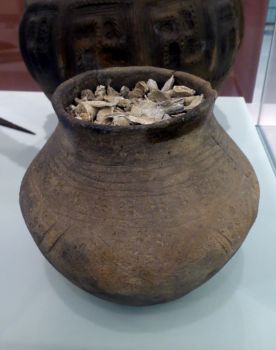
Frequently Asked Questions
How long does cremation take?
Cremation typically takes 2 to 3 hours, but the exact length can vary depending on factors such as the body’s weight and the type of cremation chamber used. After the cremation, the remains need to cool down, and then they are processed into a finer substance, which can take an additional couple of hours.
What happens when a family can’t afford a funeral?
When a family can’t afford a funeral, several options are available. They can explore direct cremation, which is the least expensive disposition option. Some funeral homes offer payment plans, or the family might consider crowdfunding to raise funds. Social services or charitable organizations may be able to assist in some cases, especially for low-income families. Veterans and their spouses may be eligible for burial benefits. When none of these options are possible, the local or state government may provide a basic funeral or cremation.
Is cremation ethical?
Cremation is generally considered ethical but can depend on personal, religious, or cultural beliefs. It is more environmentally friendly than traditional burial in some ways, as it doesn’t require land space or embalming chemicals. However, it does use energy and releases emissions. Some people might have ethical concerns about treating the body after death. It’s a personal decision, and it’s important to consider all aspects and discuss it with family or spiritual advisors.
Can you be cremated without a coffin?
Yes, you can be cremated without a traditional coffin. Many crematories require the body to be enclosed in a rigid, combustible, leak-proof container, but it doesn’t have to be a traditional wood or metal casket. Cardboard or other simple, combustible container is often acceptable and more cost-effective.
Can someone prepay for a cremation?
Yes, prepayment for cremation is a common practice. This is often done through a process known as pre-need planning, where you arrange and pay for your funeral or cremation in advance. This can lock in current prices and ease the burden on family members after your death.
Can I get a loan for cremation?
Yes, it’s possible to get a loan to cover cremation costs. Personal loans, funeral loans, or even credit cards could be used, but remember that these options will usually involve interest and potentially other fees. Always understand the terms of any loan and consider other options first, such as payment plans or assistance programs.